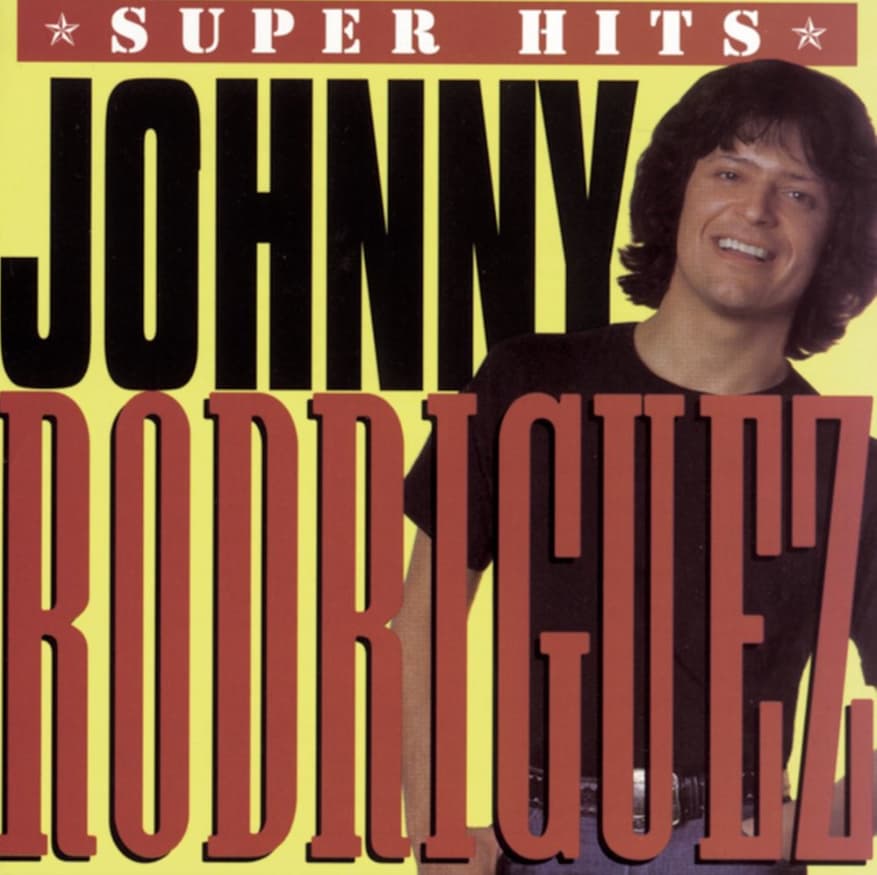
A Half-Dozen Roses Short of a Dozen: A Heartbreaking Farewell Sealed with a Bouquet
The enduring ballad of love lost and a final, eloquent gesture of regret and forgiveness.
For those of us who came of age during country music’s golden era of the 1970s, the smooth, earnest voice of Johnny Rodriguez remains a touchstone. His was a sound that broke barriers, infusing the classic Nashville storytelling with a warmth and sincerity born of his Mexican-American heritage—a truly unique and compelling presence. Among his extensive catalog of hits, few carry the quiet, devastating emotional weight of “Eleven Roses.”
Released in 1983 on the Epic Records label, this single resonated deeply with listeners, climbing to a respectable No. 6 on the Billboard Hot Country Singles chart. While not one of his six chart-toppers, its persistence in the Top 10 cemented its place as a quintessential Johnny Rodriguez track. The song was featured on his album Foolin’ With Fire (1984), a later entry in a career that had already racked up an astonishing run of successes throughout the preceding decade. It’s a late-period gem that proves the enduring power of a simple, gut-wrenching story, perfectly delivered.
The song’s narrative, penned by the songwriting duo of Darrell McCall and Lamar Morris, is a masterpiece of metaphor and restrained heartbreak. It tells the simple, yet profound, story of a man who has made a mess of his relationship. Now, standing on the outside of a closed door, he’s made a final, desperate attempt at reconciliation or, perhaps more realistically, a final, humble apology. The story is encapsulated entirely in the image of a dozen roses—or, rather, the poignant absence of one.
The narrator sends his estranged lover a bouquet of eleven roses, a beautiful, near-perfect offering that is deliberately, meaningfully incomplete. In the accompanying card, he explains the gesture: the eleven roses represent the eleven times he has been wrong, the eleven failures and mistakes he made during their time together. But the final, unspoken twelve-rose is her, the one who is perfect, whole, and now tragically missing from his life. It is a stunning, poetic admission of guilt, a recognition of her irreplaceable worth, and a melancholic acknowledgment that the sum of his failings has cost him his everything.
For those of us who have lived long enough to accumulate a few regrets, the meaning of “Eleven Roses” cuts straight to the core. It speaks to the universal truth that in love, it is often our own imperfections, our stubbornness, or our sheer, clumsy humanity that causes the most pain. The song isn’t a plea for a second chance so much as it is a mature, reflective acceptance of the consequences. The narrator isn’t blaming her; he’s taking the full measure of his own culpability, using the fragile beauty of the flowers to communicate a depth of sorrow that mere words couldn’t manage. It’s the ultimate ‘I was wrong’ packaged in an unforgettable symbol.
Johnny Rodriguez’s delivery is what truly sells this melancholy poetry. His voice, with its gentle, natural vibrato and Texan drawl, doesn’t rage or plead. Instead, it carries an inherent weariness, a tone of quiet resignation that feels utterly authentic. This subtle, nuanced performance is key to the song’s appeal, particularly for the seasoned listener who understands that the greatest heartbreaks are often the quietest, lingering ones. It doesn’t sound like a young man’s fleeting romance; it sounds like a man gazing back at a life choice he can never undo.
This single arrived at a time when Rodriguez was transitioning slightly within the country landscape, yet his classic style remained intact—a blend of traditional honky-tonk grit and smooth country-pop polish. “Eleven Roses” stands as a testament to the power of the classic country ballad formula: a simple, memorable melody, a clear story, and an emotional payoff that leaves a lump in your throat. It reminds us that sometimes the most potent expression of love and loss is not in the grand gesture, but in the single, missing rose. It’s a bittersweet memory we carry with us, a beautiful song that blooms with the pain of an incomplete past.